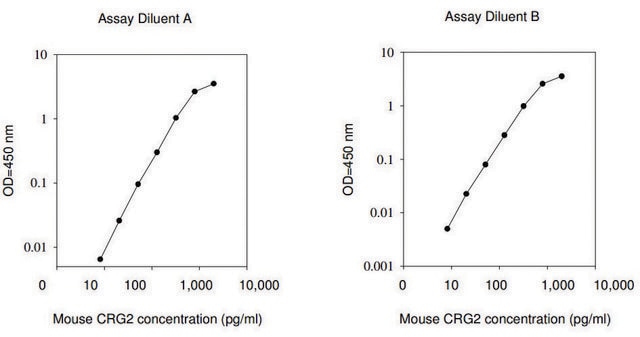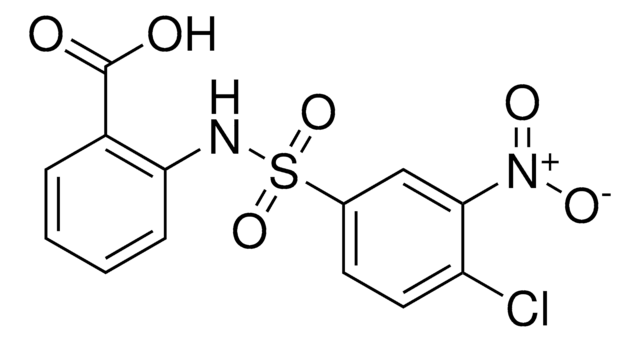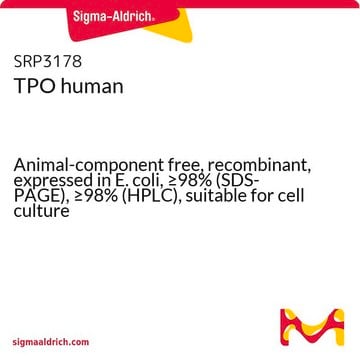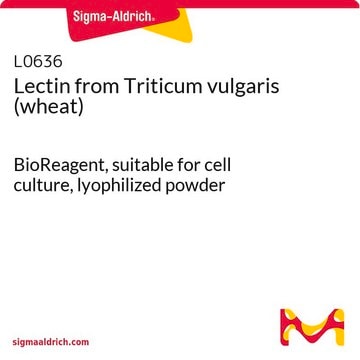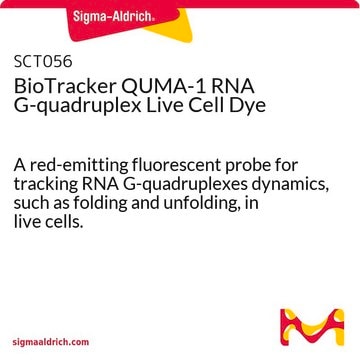C8490
CRG-2 from mouse
BioReagent, recombinant, expressed in E. coli, ≥97% (SDS-PAGE), lyophilized powder, suitable for cell culture
Synonym(s):
CXCL10, Cytokine Responsive Gene 2, IP-10
Sign Into View Organizational & Contract Pricing
All Photos(1)
About This Item
Recommended Products
recombinant
expressed in E. coli
Quality Level
product line
BioReagent
Assay
≥97% (SDS-PAGE)
form
lyophilized powder
mol wt
predicted mol wt ~8.8 kDa
technique(s)
cell culture | mammalian: suitable
impurities
endotoxin, tested
UniProt accession no.
storage temp.
−20°C
Gene Information
mouse ... Cxcl10(15945)
General description
Recombinant Mouse CRG-2 is produced from a DNA sequence encoding the mature mouse CRG-2/IP-10 protein sequence (MIPLARTVRCNCHIHIDDGPVRMRAIGKLEIIPASLSCPRVEIIATMKKNDEQRCLNPESKTI KNLMKAFSQKRSKRAP). The methionyl form of the E. coli-expressed mature CRG-2 contains 78 amino acid residues and has a predicted molecular mass of approximately 8.8 kDa.
Recombinant Mouse CRG-2 (IP-10, CXCL10) is a member of the chemokine ??subfamily that lacks the ELR domain. Mouse CRG-2 cDNA encodes a 98 amino acid residue precursor protein with a 21 amino acid residue signal peptide that is cleaved to form the 77 amino acid residue secreted mature protein. Mature mouse CRG-2 shares approximately 67% amino acid sequence identity with human IP-10.
Recombinant Mouse CRG-2 (IP-10, CXCL10) is a member of the chemokine ??subfamily that lacks the ELR domain. Mouse CRG-2 cDNA encodes a 98 amino acid residue precursor protein with a 21 amino acid residue signal peptide that is cleaved to form the 77 amino acid residue secreted mature protein. Mature mouse CRG-2 shares approximately 67% amino acid sequence identity with human IP-10.
Physical form
Lyophilized from a 0.2 μm filtered solution in PBS, pH 7.4, containing 50 μg bovine serum albumin per 1 μg of cytokine
Analysis Note
The biological activity is measured by its ability to chemoattract human lymphocytes cultured in the presence of IL-2 for 21 days, or mouse BaF/3 cells transfected with hCXCR-3.
Storage Class Code
11 - Combustible Solids
WGK
WGK 3
Flash Point(F)
Not applicable
Flash Point(C)
Not applicable
Personal Protective Equipment
dust mask type N95 (US), Eyeshields, Gloves
Choose from one of the most recent versions:
Certificates of Analysis (COA)
Lot/Batch Number
Don't see the Right Version?
If you require a particular version, you can look up a specific certificate by the Lot or Batch number.
Already Own This Product?
Find documentation for the products that you have recently purchased in the Document Library.
S Mahalingam et al.
Immunology and cell biology, 78(2), 156-160 (2000-04-13)
MuMig (monokine induced by gamma interferon) and Crg-2 (cytokine responsive gene) are chemokines of the CXC subfamily. They share activity as T and NK cell chemoattractants. Crg-2 has been shown to be inducible by IFN, TNF, IL-1 and LPS, whereas
Yingping Hou et al.
The Journal of investigative dermatology, 135(12), 3060-3067 (2015-07-24)
Recessive dystrophic epidermolysis bullosa (RDEB) is an inherited disorder characterized by skin fragility, blistering, and multiple skin wounds with no currently approved or consistently effective treatment. It is due to mutations in the gene encoding type VII collagen (C7). Using
Y Ohmori et al.
Biochemical and biophysical research communications, 168(3), 1261-1267 (1990-05-16)
Recently, we have isolated and characterized a set of cDNA clones which encode lipopolysaccharide-inducible proteins in murine peritoneal macrophages. Here, we report the sequence and identification of one of these cDNAs previously termed C7. Nucleotide sequence analysis revealed an open
P Vanguri et al.
The Journal of biological chemistry, 265(25), 15049-15057 (1990-09-05)
In order to identify novel proteins produced by activated macrophages, a cDNA library was made from cultures of the mouse macrophage-like cell line RAW 264.7 that had been treated with conditioned medium from mitogen-stimulated spleen cells, and the library was
Takanobu Utsumi et al.
The Journal of urology, 192(2), 567-574 (2014-02-13)
Renal cell carcinoma expresses CXCR3 but the function of CXCR3 in renal cell carcinoma has not been clarified. We explored the function of CXCR3 in renal cell carcinoma and investigated CXCR3 regulating factors. We obtained 56 clinical samples of clear cell
Our team of scientists has experience in all areas of research including Life Science, Material Science, Chemical Synthesis, Chromatography, Analytical and many others.
Contact Technical Service